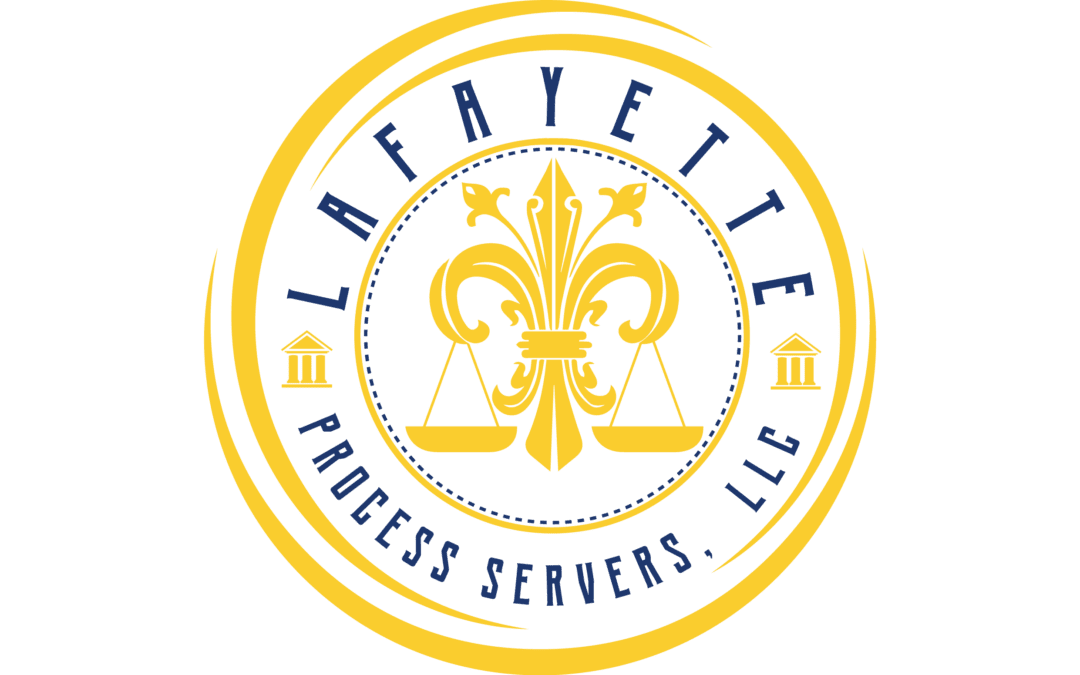In the demanding world of process serving, locating individuals who intentionally – or unintentionally – evade service is a common challenge. This is where the crucial skill of skip tracing comes into play. As of July 2025, with evolving technologies and increasingly complex privacy regulations, mastering skip tracing is more vital than ever for process servers looking to efficiently and legally fulfill their duties.
This ultimate guide, with insights from the experts at Lafayette Process Servers LLC, will delve into the essential tools, techniques, and legal considerations for effective skip tracing, ensuring you stay ahead in your field and uphold the integrity of the legal process.
What is Skip Tracing and Why It’s a Core Skill for Process Servers? 🎯
At its core, skip tracing is the process of locating individuals whose whereabouts are unknown. For process servers, this skill bridges the gap between legal mandates for service and the reality of elusive subjects. Without effective skip tracing, cases can stall, causing delays in the justice system and frustration for clients.
Lafayette Process Servers LLC emphasizes that skip tracing is not just about finding someone; it’s about doing so ethically and legally. Their extensive experience in Southwest Louisiana and beyond has honed their expertise in employing a multi-faceted approach to locate individuals efficiently while adhering to all applicable laws.
The Legal Framework: Navigating the FDCPA, GLBA, and State Laws ⚖️
Before diving into techniques, understanding the legal landscape is paramount. Process servers must be acutely aware of laws that govern the collection and use of personal information. Key federal regulations include:
- Fair Debt Collection Practices Act (FDCPA): While primarily aimed at debt collectors, certain aspects regarding communication and harassment can be relevant.
- Gramm-Leach-Bliley Act (GLBA): This act protects the privacy of consumers’ financial information. Accessing such information without proper authorization is illegal.
Furthermore, Louisiana state laws regarding privacy, data security, and permissible investigative practices must be strictly followed. Lafayette Process Servers LLC stresses the importance of ongoing education and staying updated on these regulations to avoid legal pitfalls.
The Modern Skip Tracer’s Toolkit: A Review of Top Databases and Software for 2025 🛠️
Gone are the days of relying solely on phone books. Today’s skip tracers leverage sophisticated databases and software to uncover crucial information. Lafayette Process Servers LLC utilizes a range of tools, emphasizing that the best approach often involves combining multiple resources:
- Proprietary Databases (e.g., TLOxp, LexisNexis, Tracers): These subscription-based services offer access to vast amounts of public and private records, including address histories, property ownership, vehicle registrations, and more.
- Public Records Search Engines: Government websites at the local, state, and federal levels can provide valuable information, such as court records, inmate locators, and business filings.
- Social Media Intelligence Tools: While ethical considerations are crucial, publicly available social media profiles can sometimes offer clues to a person’s current whereabouts or connections.
- Specialized Skip Tracing Software: Platforms designed specifically for investigators can help organize data, automate searches, and manage cases efficiently.
Lafayette Process Servers LLC advises process servers to carefully evaluate the cost, data accuracy, and legal compliance of any tools they choose to use.
Digital Detective Work: Using Social Media and Online Clues Ethically 📱
The digital footprint an individual leaves online can be a goldmine for skip tracers. However, it’s crucial to navigate this landscape ethically and legally. Lafayette Process Servers LLC highlights the following guidelines:
- Publicly Available Information Only: Focus on data that is openly accessible and does not require hacking or deception to obtain.
- Avoid Pretexting: Do not create false pretenses or misrepresent yourself to gain access to private information.
- Cross-Reference Information: Verify any information found online through other reliable sources.
Social media platforms, professional networking sites, and even online forums can sometimes provide hints about a person’s current location, employment, or associates.
Unlocking Public Records: From Property Deeds to Court Filings 🏛️
Public records are a foundational resource for skip tracing. Lafayette Process Servers LLC frequently utilizes these resources, which are legally accessible to the public:
- Property Records: County assessor websites often provide current and historical ownership information.
- Voter Registration Records: These can confirm current addresses.
- Business Filings: Secretary of State websites usually list registered agents and business addresses.
- Court Records: Publicly accessible court dockets can reveal recent legal involvement and associated addresses.
Navigating these records efficiently often requires understanding the specific websites and procedures of the relevant jurisdictions.
Advanced Techniques for Finding Highly Evasive Subjects 🏃♀️
Some individuals are more challenging to locate than others. Lafayette Process Servers LLC employs advanced techniques when necessary:
- Network Analysis: Identifying and contacting known associates, family members, or employers.
- Vehicle Location Services (with proper legal basis): In certain legal circumstances, vehicle location technology might be permissible.
- Mail Forwarding Checks: Verifying if the subject has filed a change of address with the postal service.
- “Boots on the Ground” Investigation: In some cases, physical canvassing of last known addresses or associated locations can yield results.
It’s crucial to emphasize that all advanced techniques must be conducted within legal boundaries and with a strong understanding of privacy rights.
Documenting Your Due Diligence: How to Create a Skip Trace Report for Court 📝
Thorough documentation is essential to demonstrate the efforts taken to locate an individual. Lafayette Process Servers LLC provides detailed reports that typically include:
- Date and Time of Searches: A record of when and where information was accessed.
- Databases and Sources Used: A list of all resources consulted.
- Results of Searches (both positive and negative): A comprehensive overview of the information found.
- Attempts Made to Contact Individuals: Records of phone calls, emails, or in-person inquiries.
- Analysis and Reasoning: An explanation of the steps taken and the rationale behind them.
A well-documented skip trace report strengthens the affidavit of service and demonstrates due diligence to the court.
Turning a Skill into a Service: How to Price and Offer Skip Tracing to Clients 💼
For process servers looking to expand their services, offering skip tracing can be a valuable addition. Lafayette Process Servers LLC suggests considering the following when pricing and marketing this skill:
- Complexity of the Case: Factor in the difficulty and time involved in locating the individual.
- Tools and Resources Used: Account for the cost of database subscriptions and other resources.
- Your Expertise and Experience: Charge a rate that reflects your skill level and success rate.
- Value Proposition: Clearly communicate the benefits of your skip tracing services to clients, such as faster service and reduced delays.
By mastering skip tracing, process servers can significantly enhance their value and success in the field.
Conclusion: Mastering the Art and Science of Skip Tracing in 2025 🚀
Skip tracing is a dynamic and crucial skill for process servers. By staying informed about the latest tools, techniques, and legal regulations, and by adhering to ethical practices, professionals can effectively locate individuals and ensure the smooth administration of justice. Lafayette Process Servers LLC stands as a testament to the importance of expertise, technology, and unwavering commitment to legal compliance in the realm of process serving and skip tracing.
#SkipTracing #ProcessServer #LegalSupport #DueDiligence #LafayetteLA #LouisianaLaw #LegalTech #ProcessServing #FindPeople #LafayetteProcessServers
Sources:
- Lafayette Process Servers LLC (Services also listed under Baton Rouge Process Servers): https://baton-rouge-process-servers.com/
- Louisiana State Legislature – Code of Civil Procedure: https://www.legis.la.gov/legis/Law.aspx?d=111171
- Fair Debt Collection Practices Act (FDCPA): https://www.consumerfinance.gov/rules-policy/final-rules/fair-debt-collection-practices-act-regulation-f/
- Gramm-Leach-Bliley Act (GLBA): https://www.ftc.gov/business-guidance/privacy-security/gramm-leach-bliley-act
- National Association of Professional Process Servers (NAPPS): https://napps.org/
Disclaimer: This article is for informational purposes only and does not constitute legal advice. Skip tracing involves accessing and using various sources of information, and it is crucial to ensure compliance with all applicable federal, state, and local laws and regulations regarding privacy and data security. Always consult with legal counsel to ensure your skip tracing practices are legal and ethical. Lafayette Process Servers LLC provides process serving and skip tracing services within the bounds of the law and recommends that all process servers adhere to the highest ethical and legal standards.
Delivering Justice: Your Trusted St. Mary Parish Process Server – Lafayette Process Servers LLC 🤝⚖️

